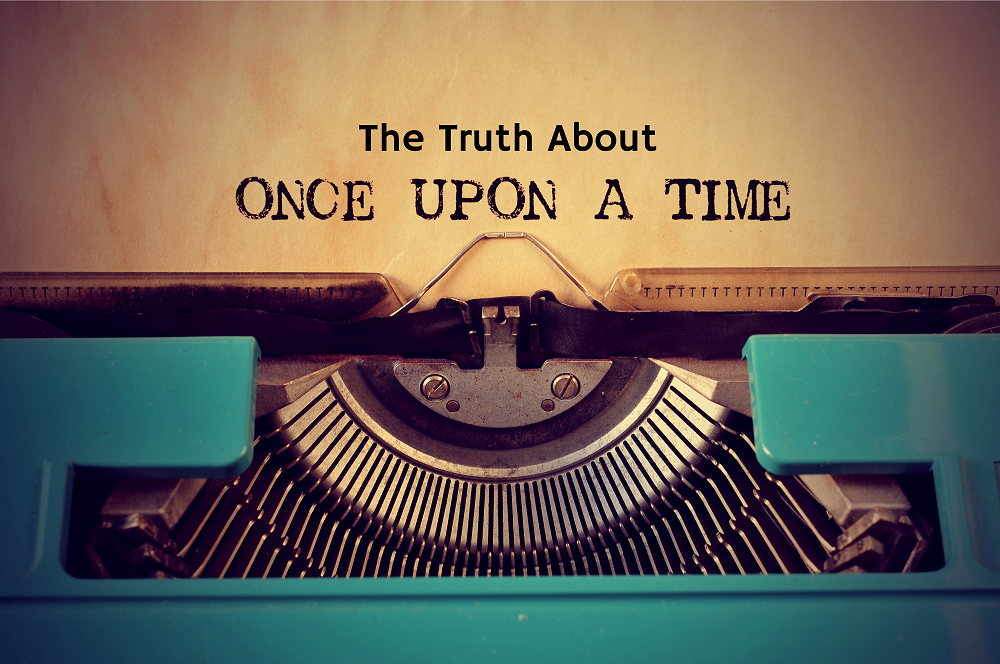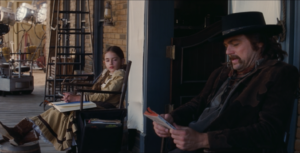
Every good story has meaning!
We humans are undeniably creatures of story. Think of how empty life would be without ever having been transfixed by images dancing before our eyes in a dark movie theatre, engrossed in an incredible page-turner, or mesmerized by a master storyteller weaving a yarn around a roaring campfire.
But stories are not just for entertainment. They are, fundamentally, teaching tools. They are vehicles that reveal universal truths about the world and our place in it. We tell stories to make sense of the chaos of living and to build essential bridges of understanding. To that end, every good story must reveal some deeper truth about life. Call it the “moral”, the “spine” or the “controlling idea”. Without a series of events (plot) infused with meaning, the storytelling experience inevitably falls flat.
I was recently channel surfing and stumbled upon Quentin Tarantino’s latest, Once Upon a Time in Hollywood. I’ve seen it before; but on this day, I was pulled in again. On each subsequent viewing, I develop a deeper appreciation for this film.
Tarantino doesn’t pull any punches; it’s right there in the title. Those magic words, “Once Upon a Time”, tell us we are about to embark on a Hollywood fairytale experience. But, like every great storyteller, Tarantino knows that although the plot can certainly veer from fact to fiction, the deeper meaning of his tale must resonate in the hearts and bones of his audience. So, what is this movie really about? What is the truth underlying Once Upon a Time in Hollywood?
Tarantino doesn’t make us work hard to understand the storm raging inside the head of his main character. He deliciously reveals the spine of his story in the scenes where DiCaprio’s Rick Dalton, an old-school TV Western hero, is reduced to playing the villain in a pilot shoot for a show called Lancer that may never make it to air. Playing the heavy, we are told, is extra hard for a former leading man like Rick, because everyone knows the villain always gets his ass kicked at the end.
The brilliant, hilarious, and emotionally charged scenes on the Lancer set tell the audience most of what we need to know about Rick, his journey, and the emotional core of the story. We start with Dalton meeting his co-star, 8-year-old Trudi Fraser, aka, “Mirabella Lancer”. Rick is killing time with a beat-up pulp western novel. Trudi asks him what the story is about. Rick tersely replies, “I haven’t finished it yet.” She retorts, “I didn’t ask for the whole story. What’s the idea of the story?” Trudi, wise beyond her years, knows the “controlling idea” of a story animates everything. (See, 5 Reasons Every Lawyer Should Study the Art of Screenwriting — and a Killer Resource List To Get You Started).
Rick elaborates on the plot. He tells Trudi that the hero of the story is a bronco buster called “Easy Breezy.” In his younger days, he could break any horse. In his late 30’s a horse gets the better of him, and after a bad fall he is never the same. He spends “more of his days in pain then he ever did before.” Easy Breezy suffers with the reality that he is no longer at the top of his game. He is “coming to terms with what it’s like to be slightly more useless each day,” Rick tells Trudi.
At this point, Rick, the Hollywood tough guy, begins whimpering like a child. Trudi puts her hand on his knee, “Poor easy breezy, I’m practically crying, and I haven’t even read it.” Dalton replies, “in about 15 years you’ll be living it.”

Rick Dalton and Trudi on Set of “Lancer” (CLICK ON THE PICTURE OR HERE TO WATCH THE SCENE)
There is nothing subtle here – the story of obsolescence is Rick’s, not Easy Breezy’s. Therein lies the first nugget of universal truth in this story – all of us can relate to Rick on some level. Every human, no matter what age, experiences profound moments of self-doubt. Like Rick, we might question whether our best days are behind us, either personally or professionally. We struggle with whether we are good enough, smart enough, loved enough, rich enough, you name it.
The universal connection we feel to Rick’s inner conflict is the foundation of great storytelling. However, that doesn’t get us all the way home when it comes to uncovering the “idea” of a story.
The real question is, what does Tarantino want to tell us about that struggle and how we must confront it? What is the universal truth being expressed beyond, “we all feel this way sometimes”? Only after we answer that question will we have a full handle on the big idea. The plot, of course, is a vehicle to help us get to the full truth of the story.
So, what do we think this movie has to say about Rick Dalton’s nagging feeling that his best days are behind him, or, even worse, that his “glory days” in Hollywood were maybe not, in retrospect, so glorious after all?
Take your pick from one or all of these big ideas I took away from this story:
- Living with regrets and/or obsession with the past is a recipe for a torturous now;
- You can’t stop change that inevitably comes with the passage of time; the only way to survive and thrive is to adapt and be open to it;
- True happiness comes from having gratitude for what you have, not lamenting over what you do not; and
- Our scars and wisdom that only come with age, experience, and struggle, make us stronger and better than we even know.
How’s that? Maybe you have your own ideas about the meaning underlying this story, or just thoughts about the movie in general. If so, I would love to hear about it in the comments below!
